Navigating ADLs: A Comprehensive Guide for Caregivers on Activities of Daily Living
Discover how ADLs (Activities of Daily Living) are vital for senior independence. Learn about integrating physical and occupational therapy, using adaptive equipment, and the importance of fostering autonomy in elderly care. Essential reading for caregivers aiming to enhance senior well-being

Question:
I am new to your website. What is an ADL? I am caregiver to my 88 year old mother (for 17 years) and have found your site to be helpful.
-Linda
Response:
Introduction to ADLs
Welcome, Linda, and thank you for reaching out. ADL, an acronym for Activities of Daily Living, is a term widely used in healthcare to assess an individual's ability to perform everyday tasks independently. Understanding ADLs is crucial for caregivers like yourself in providing the best care for your loved ones. This comprehensive guide will explore the concept of ADLs and offer practical advice for caregivers.
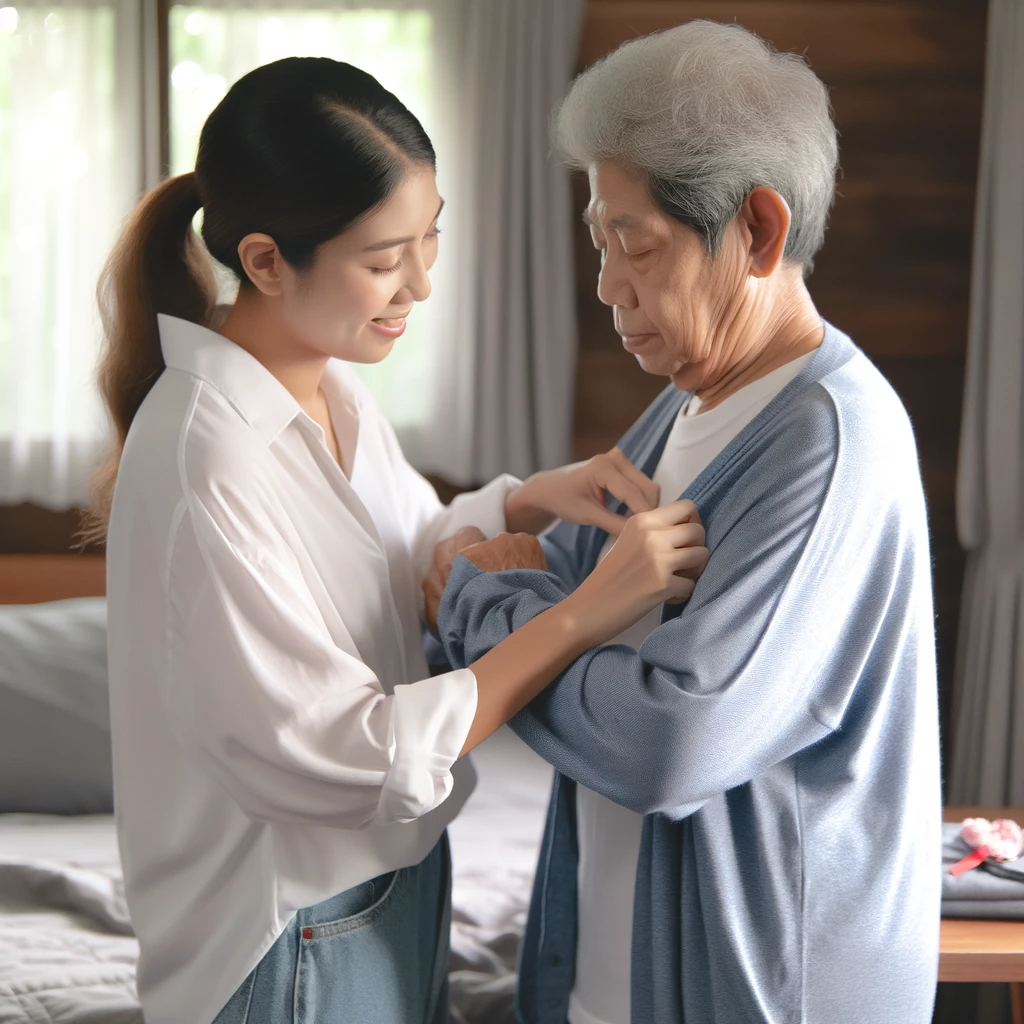
Understanding the Concept of ADLs
ADLs refer to the fundamental tasks required for self-care and independent living. These include basic activities like dressing, eating, bathing, toileting, and transferring (moving from bed to chair and vice versa). The ability to perform these activities is a measure of one’s functional status.
Significance of ADLs in Elder Care
For caregivers, understanding and assessing ADLs is essential in determining the level of care and support an older adult, like your 88-year-old mother, requires. It helps in identifying the areas where assistance is needed and planning care accordingly.
Daily Living Activities: The Core of ADLs
Personal Hygiene and Bathing:
This involves tasks related to grooming, hygiene, and bathing. Difficulty in performing these activities can indicate a need for support in personal care.
Dressing and Undressing:
The ability to choose appropriate clothes and dress independently is a key aspect of ADLs. Challenges here can range from physical limitations to cognitive impairments.
Feeding and Eating: Essential ADLs
Nutritional Intake: Ensuring your loved one can feed themselves independently is crucial. This includes the ability to chew and swallow food without assistance.
Meal Preparation: While not a basic ADL, the ability to prepare meals is an important part of maintaining independence in daily living activities.
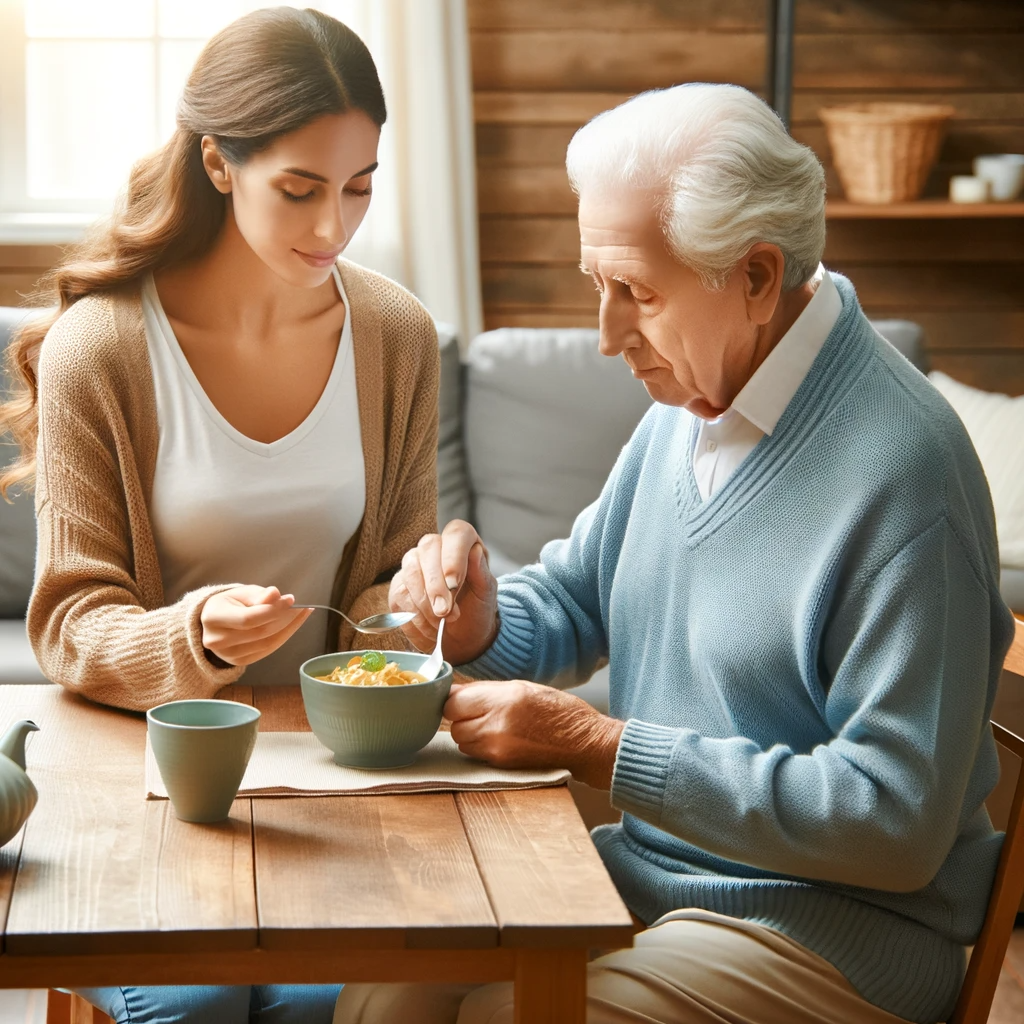
Mobility and Transferring: Vital for Independence
Moving Around: Mobility includes the ability to walk, use a wheelchair, or move without assistance. It's fundamental for independence in daily life.
Transfers: The ability to move from one position to another, such as from a bed to a wheelchair, is a crucial ADL. Difficulty in transferring can significantly impact a person's quality of life.
Toileting: A Sensitive, Yet Crucial ADL
Personal Care: This involves the ability to use the toilet and maintain continence. Assistance in toileting can be essential for maintaining dignity and hygiene.
5. Understanding the Broader Scope of ADLs
While the basic ADLs focus on fundamental self-care tasks, Instrumental Activities of Daily Living (IADLs) cover more complex activities like managing finances, handling transportation, shopping, and housekeeping. These are equally important in assessing a senior’s ability to live independently.
ADL Assessment: A Tool for Caregivers
- How to Assess ADLs: Regularly assessing your mother’s ability to perform ADLs can help in identifying changes in her health and care needs. Simple observations and conversations can be effective tools for this assessment.
- Professional Assessment: Consulting healthcare professionals for a formal ADL assessment can provide a more comprehensive understanding of your mother’s care needs.
Tips for Assisting with ADLs
- Creating a Supportive Environment: Adapting the home environment to make daily tasks easier can significantly help seniors. This may include installing grab bars in bathrooms or using adaptive utensils for eating.
- Encouraging Independence: It's important to encourage your mother to do as much as she can on her own, to maintain her independence and self-esteem.
The Role of Caregivers in ADLs
As a caregiver, your role in assisting with ADLs is pivotal. It involves not only physical support but also emotional encouragement and understanding. Being aware of your mother's capabilities and limitations is crucial in providing effective and compassionate care.
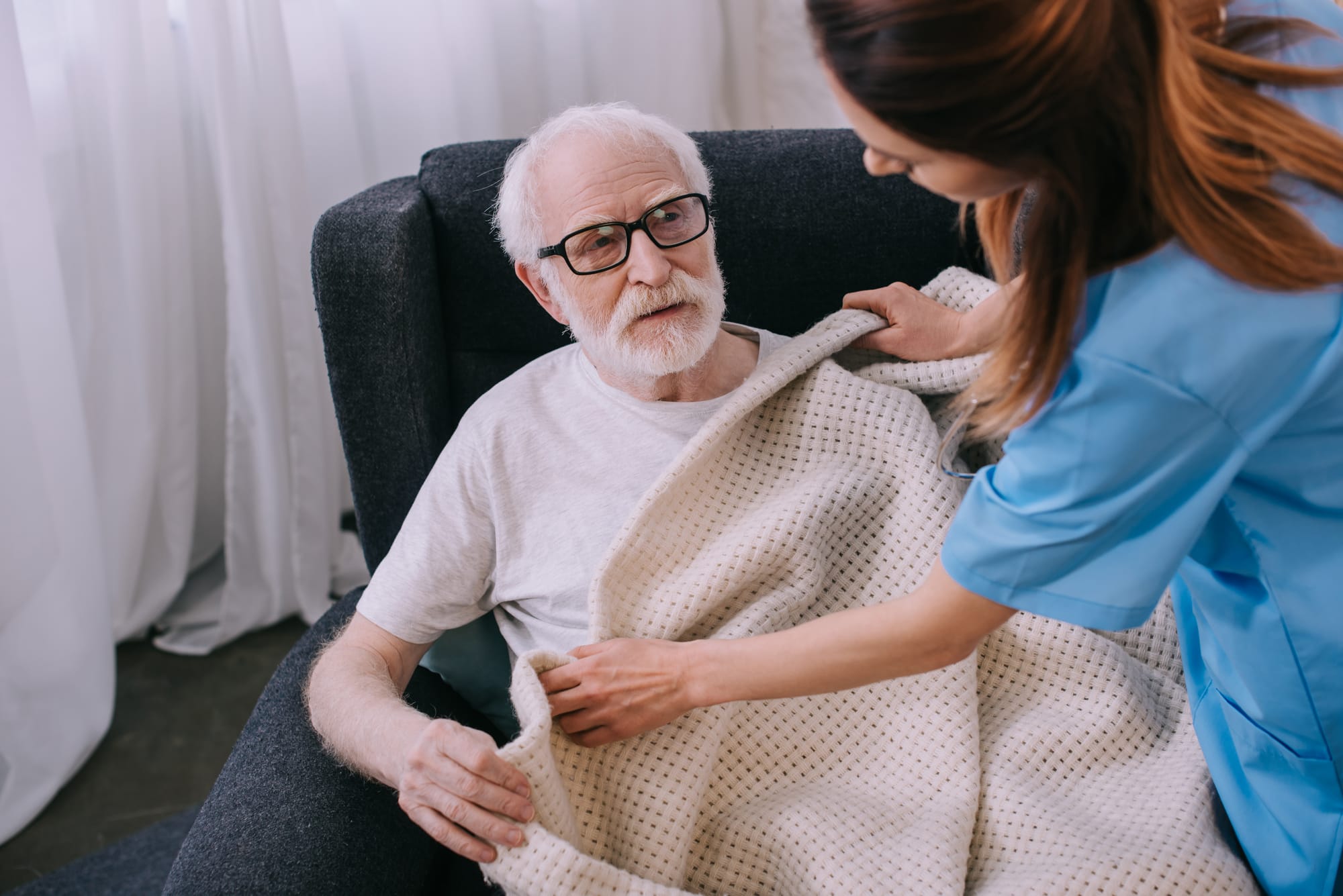
ADLs are a vital component in assessing and providing care for older adults. Understanding what activities of daily living entail and how to assist with them is essential for caregivers. By focusing on these aspects, you can ensure that your loved one continues to live a dignified and as independent a life as possible. Remember, caregiving is a journey that requires patience, understanding, and continuous learning. Your dedication to your mother's care is commendable, and with the right knowledge and resources, you can make this journey a fulfilling one for both of you.
Empowering Independence in Aging: Integrating ADLs with Physical and Occupational Therapy
Introduction to ADLs and Age-Related Decline
As individuals age, they often experience a decline in physical strength and endurance, which can significantly impact their ability to perform Activities of Daily Living (ADLs). Understanding the role of physical therapy (PT) and occupational therapy (OT) is crucial in addressing these challenges and promoting independence. This article will explore how PT and OT, along with the use of adaptive equipment, can support seniors in maintaining their independence.
Understanding Physical Therapy (PT) in ADLs
Physical therapy focuses on improving physical function through exercises that increase strength, endurance, balance, and mobility. When a senior's ability to perform ADLs declines, PT can be instrumental in regaining physical capabilities.
Enhancing Mobility and Strength: PT includes exercises and routines designed to build muscle strength and enhance mobility, directly impacting a senior's ability to perform basic ADLs like walking and transferring.
Fall Prevention: PT also plays a key role in fall prevention, a critical concern for aging individuals, by improving balance and coordination.
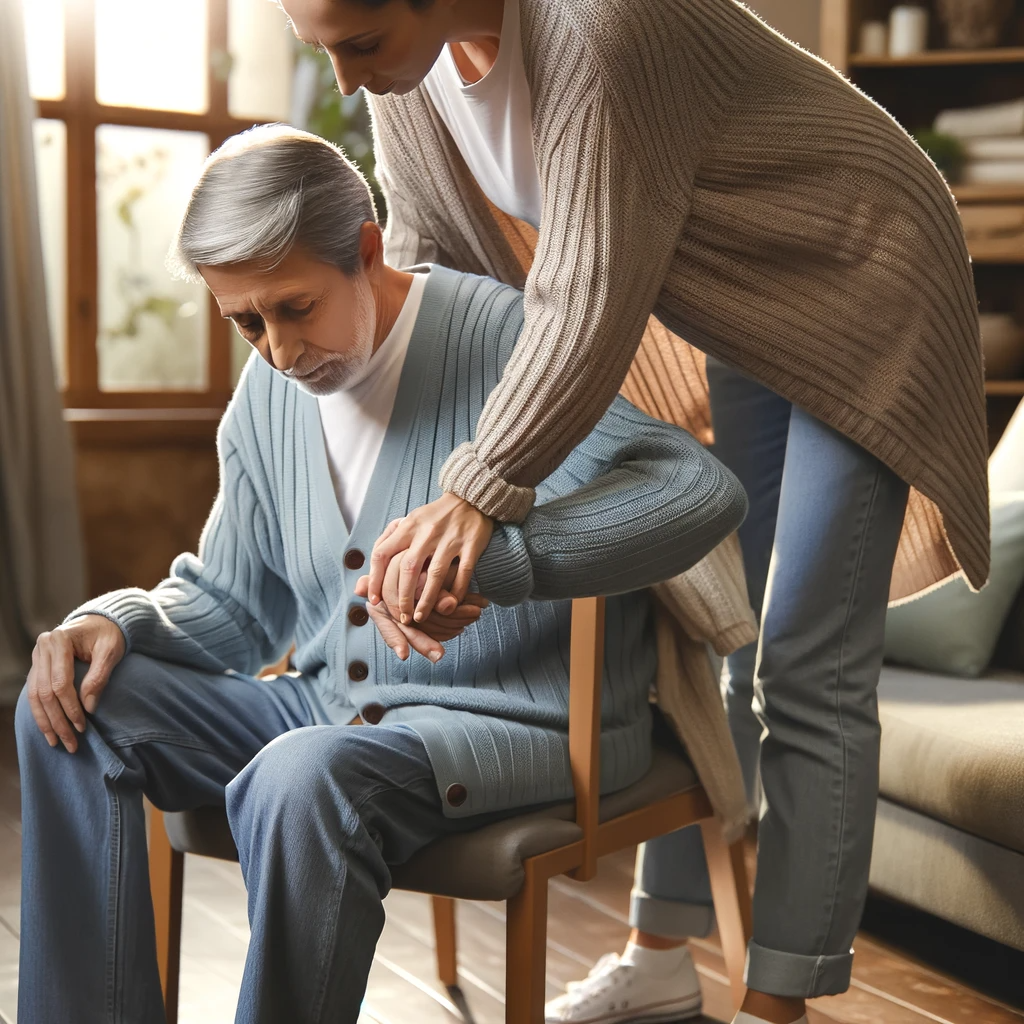
The Role of Occupational Therapy (OT) in Daily Living
Occupational therapy takes a holistic approach, focusing on optimizing a senior's ability to perform ADLs by enhancing their physical, cognitive, and motor skills.
Customized ADL Assistance: OT practitioners work with seniors to tailor strategies that address their specific needs in performing daily tasks, from dressing to meal preparation.
Cognitive Support: OT also encompasses cognitive exercises and strategies to assist seniors who may be experiencing cognitive decline, ensuring they can safely complete their daily routines.
Adaptive Equipment and Assistive Devices: Tools for Independence
Adapting the environment and using assistive devices is a crucial aspect of maintaining independence in ADLs.
Adaptive Equipment for ADLs: Items like grab bars, raised toilet seats, and shower chairs can transform a potentially dangerous activity into a safer, more manageable one.
Assistive Devices: Tools like dressing aids, specially designed kitchen utensils, and walking aids help seniors perform tasks more independently and safely.
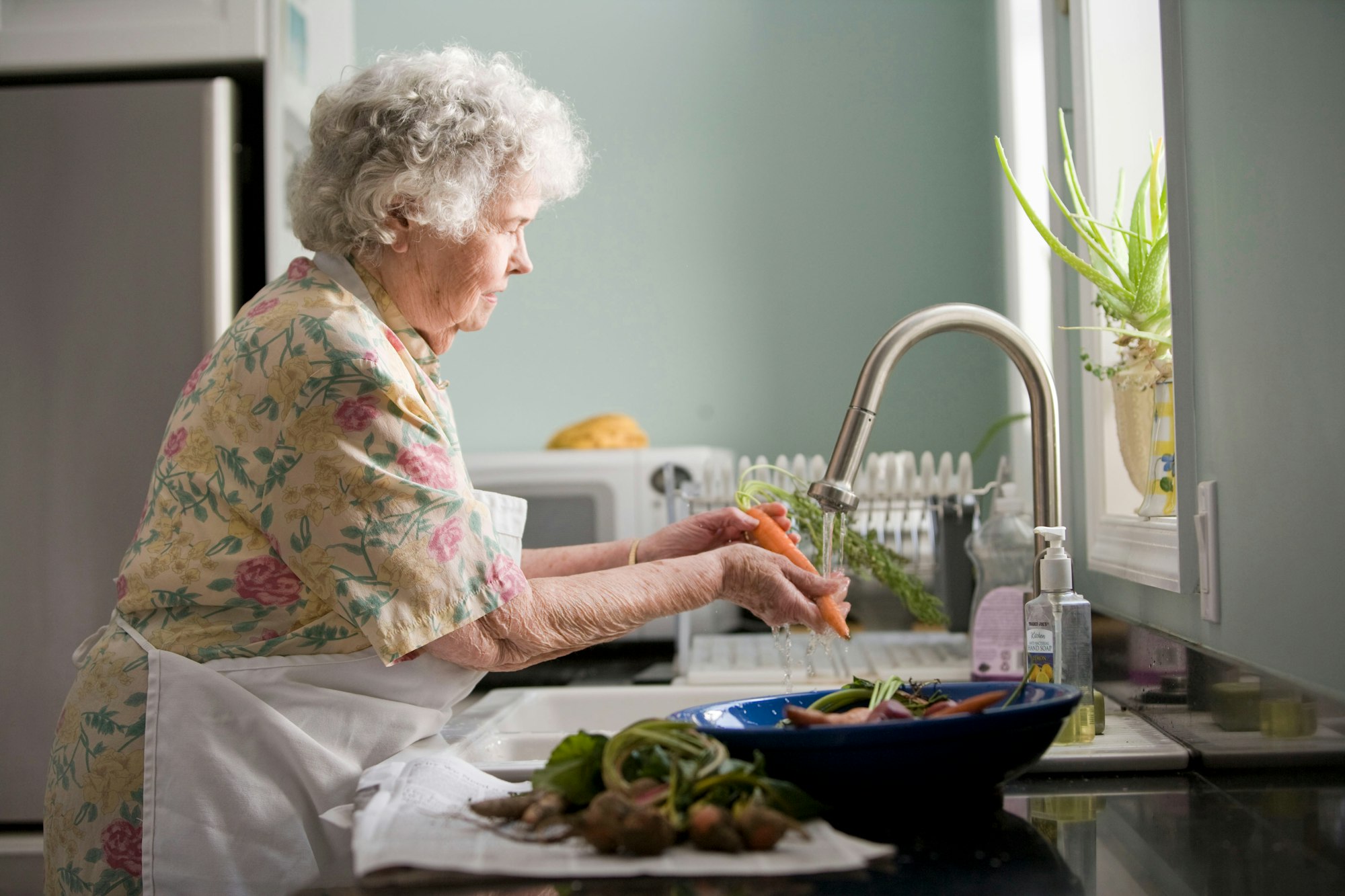
Encouraging Independence Over Dependence
One of the key goals of integrating PT, OT, and adaptive equipment in the care of aging seniors is to foster independence rather than dependence.
Promoting Self-Efficacy: Encouraging seniors to use their abilities to their fullest potential boosts confidence and preserves their sense of self-efficacy.
Balancing Assistance and Autonomy: Caregivers and therapists must find a balance between providing necessary assistance and allowing seniors to do what they can on their own.
The Importance of Patience in Caregiving
Patience is a virtue of paramount importance in caregiving, especially when dealing with seniors who are adapting to new limitations.
Understanding Frustrations: Seniors may feel frustrated or discouraged by their declining abilities. Patience and empathy are essential in supporting them through these challenges.
Celebrating Small Victories: Acknowledging and celebrating even small improvements can be incredibly motivating for seniors working to maintain their independence.
Prioritizing the Well-Being of Aging Seniors
The overall well-being of seniors is the ultimate goal in addressing ADLs through PT, OT, and adaptive aids.
Physical and Emotional Health: Both physical and emotional health should be considered in designing a care plan, recognizing that independence in ADLs significantly contributes to a senior's quality of life.
Continual Assessment and Adjustment: Regular reassessment of a senior's abilities and needs ensures that the care plan remains effective and responsive to their changing needs.
Conclusion
Physical and occupational therapy, along with the use of adaptive equipment and assistive devices, play critical roles in supporting aging seniors to perform ADLs independently. By focusing on enhancing physical strength, functional skills, and promoting independence, caregivers and healthcare professionals can significantly improve the quality of life for seniors. Patience, empathy, and continual assessment are key in this journey, ensuring that each senior's dignity and well-being are maintained throughout their aging process.
You might also like this article:





